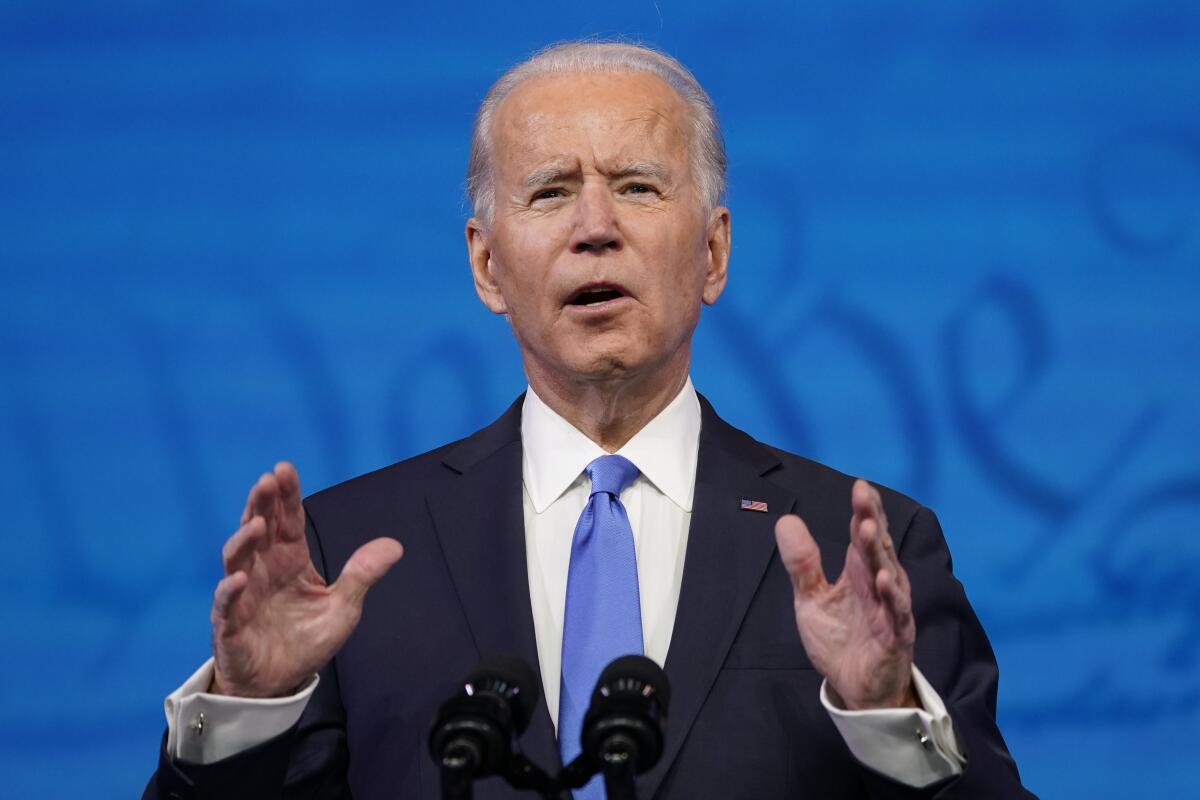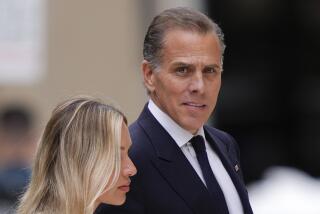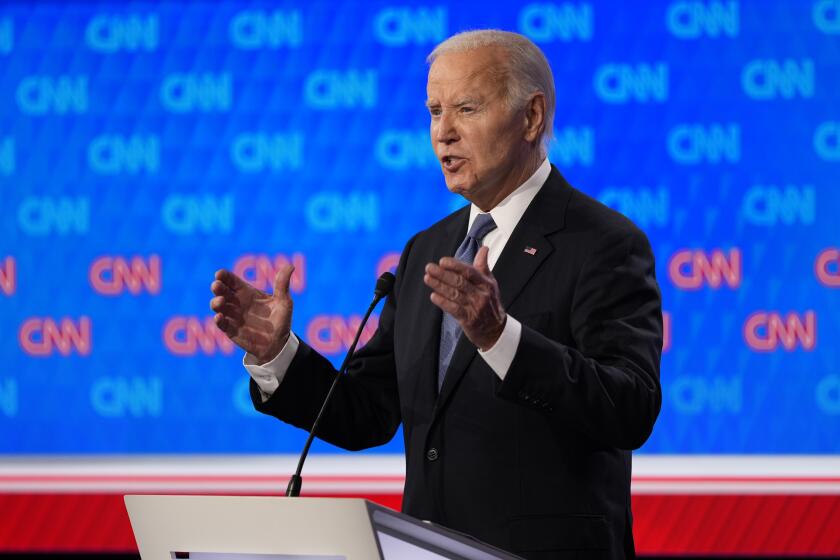Editorial: Biden follows Trump’s bad example in downgrading the American Bar Assn.’s role on judges

President Biden has rightly reversed many of the policies pursued by Donald Trump, but in one respect he is following Trump’s lead — and it’s a mistake. Like Trump, but unlike former President Obama, Biden won’t seek advice from the American Bar Assn. in advance of nominating candidates to the federal courts.
As we observed when we criticized Trump for doing away with this practice, the ABA isn’t infallible, but it has a record of evaluating prospective judges in a fair and bipartisan way based in part on confidential conversations with people who worked with prospective nominees. And it’s hard to fault the group’s criteria; its Standing Committee on the Federal Judiciary rates prospective judges on the basis of professional competence, integrity and judicial temperament.
This advice is especially useful in connection with nominees to federal district courts, who are often recommended by home-state senators, sometimes with input from advisory commissions. For these nominees, unlike appointees to higher federal courts, trial experience and judicial temperament are far more important than legal philosophy. Although some district judges do rule on constitutional matters of national significance, their most important duty is to preside at trials.
A president doesn’t need to consult the ABA or anyone else in nominating federal judges. Nor does “consulting” mean handing a group veto power over nominees. But giving the ABA a role in advance allows the president to decide whether to go through with a nomination — and it also can make it easier for a president not to choose an unqualified candidate strongly supported by home-state senators.
Negative evaluations by the ABA committee reportedly dissuaded Obama from nominating 14 candidates for federal courts. Trump ended up nominating 10 candidates who were rated “not qualified” by the ABA committee. (The vast majority of Trump nominees were rated “qualified” or “well qualified.”)
Progressives offer several reasons for not asking the ABA for its advice before a nomination is sent to the Senate. One longstanding complaint is that the ABA committee is the voice of an insular legal establishment — or, as one progressive activist put it, a “corporate-lawyer-dominated gatekeeper.” It’s true that members of the current committee are members of law firms, but some have backgrounds in government and specialties that don’t fit the stereotype of the “corporate lawyer.”
The ABA also has been criticized for awarding “qualified” or “well qualified” ratings to Trump nominees who had a history of making biased, discriminatory or hyper-partisan remarks. In some of these cases the nominees’ past remarks or writings did raise issues of temperament. But it’s important not to define “temperament” so broadly that it becomes a proxy for political views or a lawyer’s defense of controversial clients.
The most serious charge is that the ABA rating system discriminates against women and minorities. Critics of the ABA point to a 2014 study by political scientist Maya Sen that concluded that the ABA rated minorities and women significantly lower than their white or male counterparts.
The ABA disputed Sen’s conclusion at the time, and the organization’s current president, Patricia Lee Refo, says it is now “deeply committed to diversity and inclusion in the justice system and in every aspect of its work.” The committee that evaluates judicial candidates is still dominated by men, but its members otherwise mirror the country’s racial and ethnic makeup.
Diversifying the federal bench is a priority for the Biden administration, and rightly so, especially in light of Trump’s record in appointing judges. According to statistics compiled by the American Constitution Society: 84% of confirmed Trump nominees were white, compared with 64% of Obama nominees, and 76% of confirmed Trump nominees were men, compared with 58% of Obama nominees. All of Obama’s actual nominees, including women and minority candidates, received ratings of “qualified” or “well qualified” from the ABA.
To his credit, Biden also has signaled that he is looking for judicial nominees with professional backgrounds that have been underrepresented on the federal bench, such as public defenders, civil rights lawyers and legal aid attorneys. It’s simplistic, however, to assume that a judge’s professional background will dictate how she will rule. Justice Sonia Sotomayor, a former prosecutor, is a strong voice on the Supreme Court for the rights of criminal defendants.
There are multitudes of female and minority lawyers who would easily earn a “qualified” or “well qualified” rating from the ABA. Excluding the bar association from a formal role before a nomination is made could create the false impression that diversifying the bench requires lowering professional standards.
Biden has the right (and the responsibility) to press for more diversity on the federal bench. It is also his prerogative to nominate judges — especially on the Supreme Court and federal appeals courts — who share his legal philosophy. That’s what Trump did. But if the president isn’t going to consult the ABA in advance, he will need to find other ways to ensure that candidates possess the necessary experience, integrity and temperament for a lifetime appointment.
More to Read
A cure for the common opinion
Get thought-provoking perspectives with our weekly newsletter.
You may occasionally receive promotional content from the Los Angeles Times.






